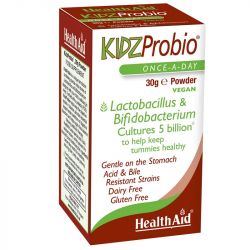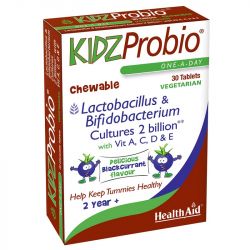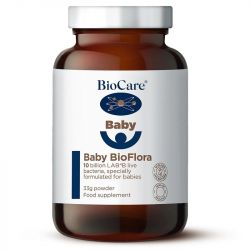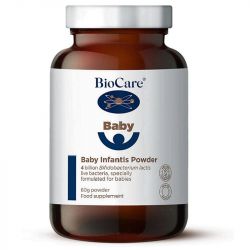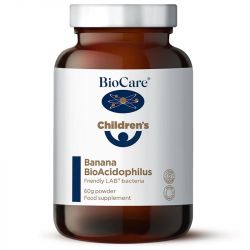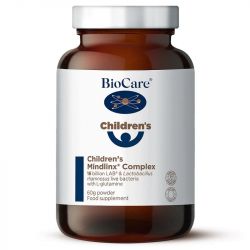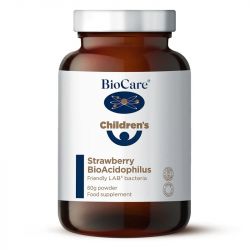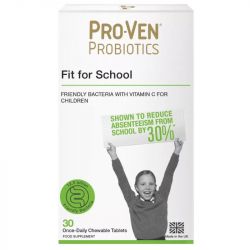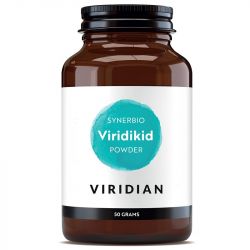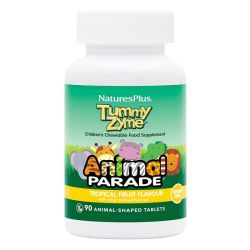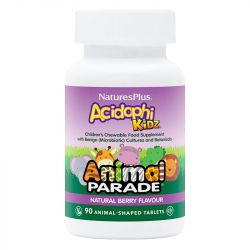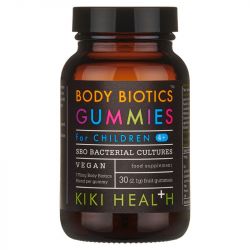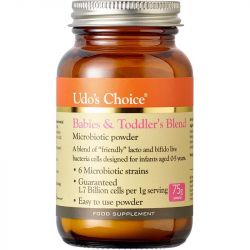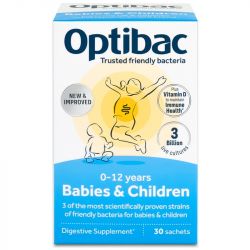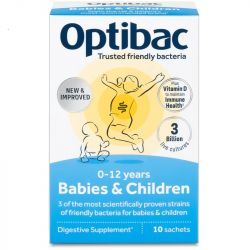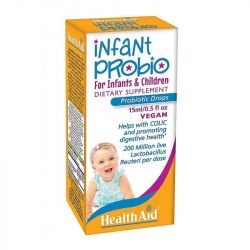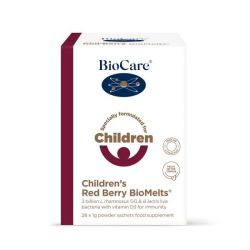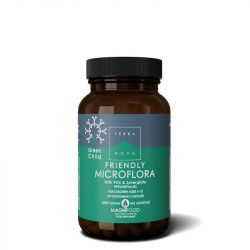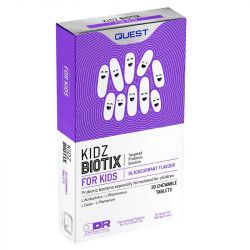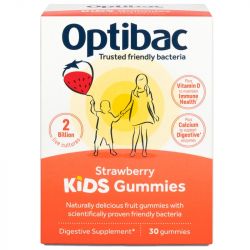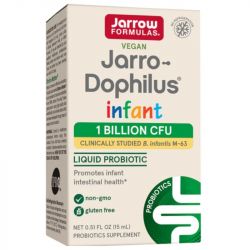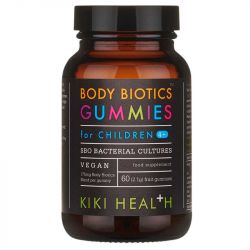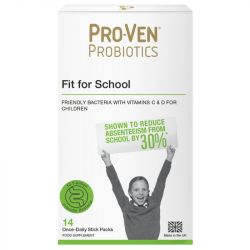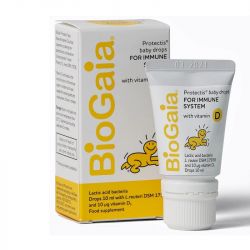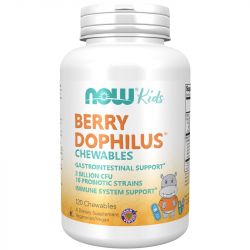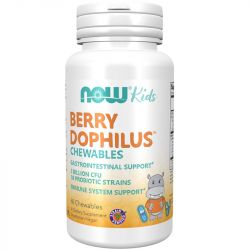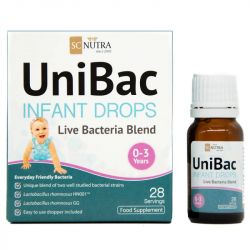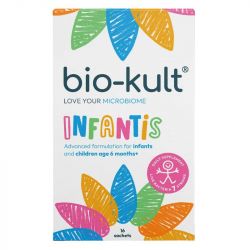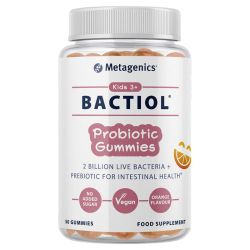Probiotics For Kids
GET FRIENDLY BACTERIA WITH CHILDREN'S PROBIOTICS: SUITABLE FOR TODDLERS & BABIES
Children's probiotics are expertly formulated to provide "friendly bacteria" to ensure a healthy digestive system and improve immune health. Our probiotics for kids are available in powders, gummies, chewable tablets and infant and baby drops, as well as capsules for older children.
Probiotic bacteria can be obtained with certain foods, like cheese and yoghurt and fermented foods. For children with weakened immune systems, a daily probiotic supplement may be the best way to get good gut bacteria into your child's diet. Find the best probiotics for kids below.
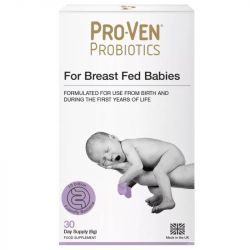 ProVen Probiotics Lactobacillus & Bifidus for Breast Fed Babies 6gSpecial Price £14.36 Regular Price £15.95
ProVen Probiotics Lactobacillus & Bifidus for Breast Fed Babies 6gSpecial Price £14.36 Regular Price £15.95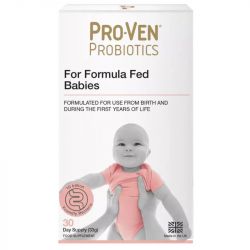 ProVen Probiotics Lactobacillius & bifidus For Formula fed Babies 33gSpecial Price £16.16 Regular Price £17.95
ProVen Probiotics Lactobacillius & bifidus For Formula fed Babies 33gSpecial Price £16.16 Regular Price £17.95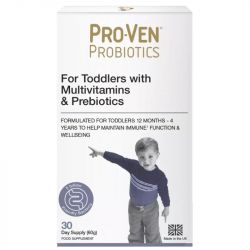 ProVen Probiotics Lactobacillius & bifidus for Toddlers 60gSpecial Price £9.86 Regular Price £10.95
ProVen Probiotics Lactobacillius & bifidus for Toddlers 60gSpecial Price £9.86 Regular Price £10.95- Udo's Choice Babies & Toddlers Blend Microbiotics Powder 75gSpecial Price £23.19 Regular Price £28.99
Probiotics For Kids Advice & FAQs
RECOMMENDED PROBIOTICS FOR KIDS?
Probiotics for kids should be supplements specifically formulated for children. You should choose probiotics for toddlers or babies depending on the age of your child.
If you're not sure where to start, consider:
- Optibac kids sachets for 0-12 years
- BioCare Children's Strawberry BioAcidophilus 60g
- Quest Vitamins Kidzbiotix Tabs 30
WHAT ARE THE HEALTH BENEFITS OF PROBIOTICS FOR KIDS?
There are a number of immune and digestive health benefits to kid's probiotics:
CHILDREN'S PROBIOTICS SUPPLEMENTS CAN IMPROVE GUT HEALTH
Probiotics are a useful natural remedy for kids, as they help to replace good bacteria within the body. Children with conditions like irritable bowel syndrome may benefit from probiotics as they will assist in restoring a healthy gut microbiome.
CHILDREN'S PROBIOTICS CAN HELP IMPROVE THEIR IMMUNE SYSTEM FUNCTION
Children who take probiotics may find it improves their immune system. They can be useful in helping the body fight viruses and preventing pathogens taking hold, like the common cold or flu. How your child benefits from probiotics will depend on the types of probiotics they are taking, and their own immune system. Speak to your child's GP to get advice on which probiotics for children are recommended.
ARE THERE ANY SIDE EFFECTS TO PROBIOTICS FOR KIDS?
If you have a child with a compromised immune system, they may have trouble processing probiotics, and could have problems with infection. If your child has a digestive health issue or bowel condition, such as IBS, they may experience watery stools, gas and bloating. You shouldn't give probiotics to very sick infants. Always consult your GP first before giving your children probiotics.
CAN MY CHILD OVERDOSE ON PROBIOTICS?
It isn't possible to overdose on probiotics to the point where they would make your child seriously ill, but if your child is fed too much probiotic, it may lead to them feeling sick, or experiencing excess bloating, gas and diarrhoea. This is because there are already trillions of bacteria living in a person's gut, and too much probiotic can upset its natural balance of bacteria.
WHAT FOODS ARE NATURALLY HIGH IN PROBIOTICS?
If you're looking to get more probiotics into your child's diet, you can feed them foods that have natural probiotics occurring within them, such as yoghurts, sauerkraut, miso, sourdough, kimchi and kefir. Some cheeses and fermented foods also contain high amounts of probiotic. If that isn't to their taste, there are plenty of tasty children's yoghurt drinks on the market that include probiotics.
DO PROBIOTICS HELP WITH IRRITABLE BOWEL SYNDROME (IBS) IN KIDS?
Yes, research has found that probiotic supplements can help kids with IBS, and other gut health issues.
One paediatric study showed that taking a probiotic supplement could 'significantly reduce pain in pediatric IBS after 1 week and improve functional ability after 2 weeks'.
Specifically, kid's probiotics with Lactobacillus Rhamnosus were recommended. Lactobacillus Rhamnosus GG is 'considered the world's most studied bacteria' and so we understand a lot about its potential benefits and limitations. For example, while probiotics for children with IBS did help with function and pain, it did not improve other health issues or stool consistency.

